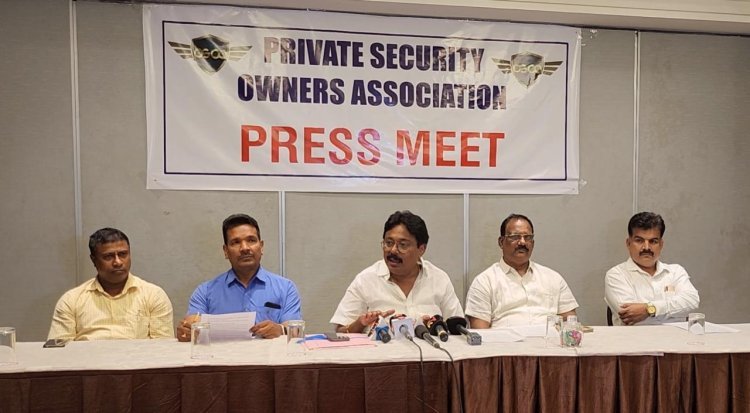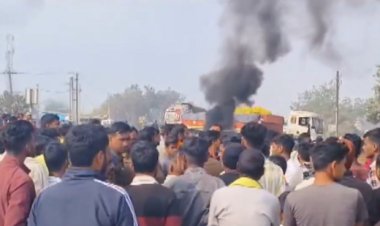Private Security and Manpower Union presented a nine-charter demand to the Gvt.
Security agencies play an essential role in providing security to business establishments or dignitaries or on an adult basis for day-to-day work in government institutions. They also create employment opportunities for lakhs of youth. However, private security and Manpower agencies suffer significantly due to the government's negligence.

Bhubaneswar: Security agencies play an essential role in providing security to business establishments or dignitaries or on an adult basis for day-to-day work in government institutions. They also create employment opportunities for lakhs of youth. However, private security and Manpower agencies suffer significantly due to the government's negligence.
President Manas Choudhury, Maheshwar Mohanty, Manoj Pada, Pradipta Rath, and Sunaran Sunda held a press meeting regarding the problems faced by the companies due to the governmant negligance.
They presented a nine-charter demand to the government.
1. All state government departments should comply with the minimum wage system.
(Some government organizations are paying less than the minimum wage set by the government. Tenders are also less than minimum wage. So the government should follow the minimum wage law. )
2. Payment should be made within seven days of billing
(We need to receive a payment within seven days of the day we issue the bill. It often takes three months to receive the payment from the government agency. So it becomes difficult for us to pay the employees.)
3. Departments should issue work certificates on the 2nd of every month
(The work certificate indicating how many days our employees worked and how many days they took leave should be issued immediately in the department where they work. So that we can bill appropriately. However, some organizations wait two months before issuing work certificates. How can we provide employees with EPF, ESI, and GST in this case? (We pay the penalty if we do not pay EPF, ESI, or GST on time.)
4. Service charge should be minimum 10%
As there is no fixed percentage (%) of service charge in the tender, big outsourcing firms are filling tenders at 0% profit to get work and leave Odisha without paying any salary, EPF, ESI, or GST.
But in that context, even the small firms of Odisha are bidding at 0% service charge, but when the government firms make the payment, they deduct 2% TDS from it, so that the firm that gets the tender has to bear the loss.
So we demand a 10% service charge to be included, in which no organization has to bear any loss.
5. Wages should be increased based on the notification of the state government
(VDA is increasing once every six months. On the one hand, the government instructs us to pay according to the government wage. However, the government bodies are refusing to accept the increased salary. They claim that it is the tender rate. So, they must pay the increased wages as per the state government's notification.)
6. Turnover criteria should be based on CPWD and OPDW guidelines
(In some cases, the turnover is purposefully set low in order to give work to outside companies. In cases where 1% EMD and 5% turnover of the tender volume are required, they are requesting a turnover of 80/90/100 crores. As a result, Odisha firms are unable to bid. It should be done under CPWD and OPWD.)
7. Work for SSG Group
The government also allows the SSG groups to provide a workforce in the name of women's empowerment. The SSG groups do not have EPF, ESI, GST, or PAN card numbers. On what basis are they being allowed to participate in the tender process? In this way, the government is also losing its revenue.
8. E-filing
E-billing systems should be enabled everywhere because sending bills everywhere is not convenient.
9. Any government official or politician should not force to hire their people. If so, we will not be responsible for the employee's work style or conduct.
Workers are being hired as a result of official and political pressure. They lack both skills and education. In such cases, we face difficulties.





 user1
user1 









